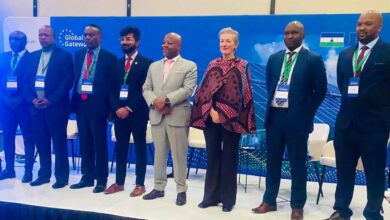The Global Impact of U.S. Tariffs: Insights from Andrey Kortunov

Andrey Kortunov, a special commentator on current affairs for CGTN and the Academic Director of the Moscow-based Russian International Affairs Council, has provided a crucial analysis on the recent announcement by the United States regarding reciprocal tariffs. Kortunov argues that this development could transform almost every nation into a victim of its own consequences, highlighting the significant ripple effects these policies might generate across the global economy.
According to Kortunov, while the exact repercussions of the U.S.’s tariff decisions remain uncertain, the worst-case scenario could see a rise in global inflation. He warns that such a scenario could trigger a severe slowdown in economic growth worldwide, potentially leading to a new global recession. If such an economic downturn were to occur, it could result in increased unemployment and a reduction in real incomes for people around the world. These outcomes would be detrimental to global stability, causing widespread hardship.
A central aspect of Kortunov’s analysis is his critique of what he describes as the U.S.’s growing unilateralism. The imposition of reciprocal tariffs could prompt major economic players, including Europe, China, and other key nations, to reorient their trade strategies. Rather than relying on global trade chains, these countries might focus more on regional commerce or prioritize expanding domestic markets over foreign ones. This shift could further disrupt international cooperation and economic interdependence, which has been a hallmark of the globalized economy in recent decades.
Moreover, Kortunov emphasizes that the rise of protectionism could stunt international collaboration in addressing some of the most pressing global challenges. Issues such as climate change, artificial intelligence governance, and cybersecurity, which require joint efforts and shared solutions, may be sidelined as countries turn inward and retreat into self-interest. The protectionist mindset could diminish the collective capability of nations to tackle these common risks, hindering progress on essential global goals.
In conclusion, Kortunov’s insights provide a sobering view of the potential long-term consequences of the U.S.’s tariff policies. The world may be on the brink of a new era of economic fragmentation, where cooperation and multilateralism are undermined, and nations are forced to cope with the fallout of protectionism. The true cost of these policies will only become clearer in the coming months and years, but Kortunov’s warning underscores the gravity of the situation facing the global economy.
Join 'Lesotho News' WhatsApp Channel
Get breaking Lesotho news — delivered directly to your WhatsApp.
CLICK HERE TO JOIN



